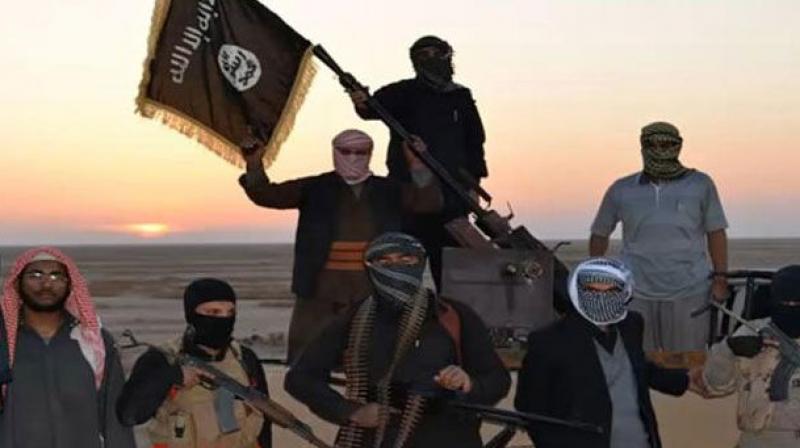Iraq launches assault on ISIS-held west Mosul
The Islamic State group has put up stiff resistance to defend Mosul, where its leader Abu Bakr al-Baghdadi proclaimed a \"caliphate\".

Oreij: Iraqi forces launched an offensive on Sunday on jihadists defending Mosul's west bank, in what could be the most brutal fighting yet in a four-month-old operation on the country's second city.
They swiftly retook at least five villages and set their sights on Mosul airport, which lies just south of the city, marking a new phase in Iraq's largest military operation in years.
The Islamic State group has put up stiff resistance to defend Mosul, the city where its leader Abu Bakr al-Baghdadi proclaimed a "caliphate" in 2014.
"Our forces are beginning the liberation of the citizens from the terror of Daesh," Iraqi Prime Minister Haider al-Abadi said in a short televised speech, using an Arabic acronym for IS.
"We announce the start of a new phase in the operation. We are coming, Nineveh, to liberate the western side of Mosul," he said, referring to the province of which Mosul is the capital.
A top army commander then announced that forces led by federal police units retook villages south of Mosul, including Athbah, which leaves them within striking distance of the airport.
"We launched our operation at 7:00 am (0400 GMT)... We are heading towards the airport," said Abbas al-Juburi of the interior ministry's elite Rapid Response force.
"We destroyed two car bombs and killed several Daesh members," he told AFP near the front line.
Toughest nut:
Military vehicles blared patriotic songs as heavy bombardment and shooting could be heard in the distance.
The jihadists overran Mosul and swathes of other territory north and west of Baghdad in 2014, sweeping aside security forces ill-prepared to face the assault.
The Iraqi government launched the offensive to reconquer Mosul on October 17, throwing tens of thousands of forces into the long-awaited counter-attack with air and ground support from the US-led coalition.
The Joint Operations Command coordinating the fight against IS declared east Mosul "fully liberated" on January 24.
But it took Iraq's most seasoned forces -- the elite Counter-Terrorism Service -- more than two months to clear the eastern side of Mosul.
After a pause, federal forces now face what was always billed as the toughest nut to crack: Mosul's west bank, home to the narrow streets of the Old City.
"West Mosul had the potential certainly of being more difficult, with house-to-house fighting on a larger and more bloody scale," said Patrick Skinner, from the Soufan Group intelligence consultancy.
Narrow streets:
The streets around the historical centre, which includes the mosque in which Baghdadi made his only public appearance in June 2014, will be impassable for many military vehicles and force government fighters to take on IS in perilous dismounted warfare.
Prior to the offensive that saw IS seize Mosul and much of Iraq's Sunni Arab heartland nearly three years ago, the east bank was more ethnically diverse than the west, where analysts believe the jihadists could enjoy more support.
"IS resistance could be greater in this area and it will be harder, but all the more important, to completely clear the networks from Mosul after its recapture," said Emily Anagnostos, Iraq analyst at the Institute for the Study of War.
While the federal forces' attrition is said to be high, IS's had been undoubtedly higher and commanders have said the jihadists may no longer have the resources to defend east Mosul effectively.
Recent incidents in the recaptured east point to the difficulty of ensuring remnants of IS have not blended in with the civilian population in a huge city which most residents did not flee ahead of the government offensive.
Aid organisations had feared an exodus of unprecedented proportions before the start of the Mosul operation but half a million -- a significant majority -- of residents stayed home.
Trapped civilians:
Their continued presence prevented both sides from resorting to deadlier weaponry, which may have slowed down the battle but averted a potentially much more serious humanitarian emergency in the middle of winter as well as more extensive material damage to the city.
"We are racing against the clock to prepare emergency sites south of Mosul to receive displaced families," the UN's humanitarian coordinator in Iraq, Lise Grande, said in a statement.
Residents of west Mosul have reported very difficult living conditions and warned that they were already low on food, with weeks of fighting expected to lie ahead.
Save the Children urged all parties to protect the estimated 350,000 children currently trapped in west Mosul.
"This is the grim choice for children in western Mosul right now: bombs, crossfire and hunger if they stay -- or execution and snipers if they try to run," said the charity's Iraq director, Maurizio Crivallero.
IS fighters and Mosul residents remained able to move across both sides of the city during much of the fighting in the east but all bridges across the Tigris have now been dropped and the jihadists in the west are all but besieged.
IS has used civilians as human shields as part of its defence tactics and killed residents attempting to flee, making it both difficult and dangerous for the population to escape.

